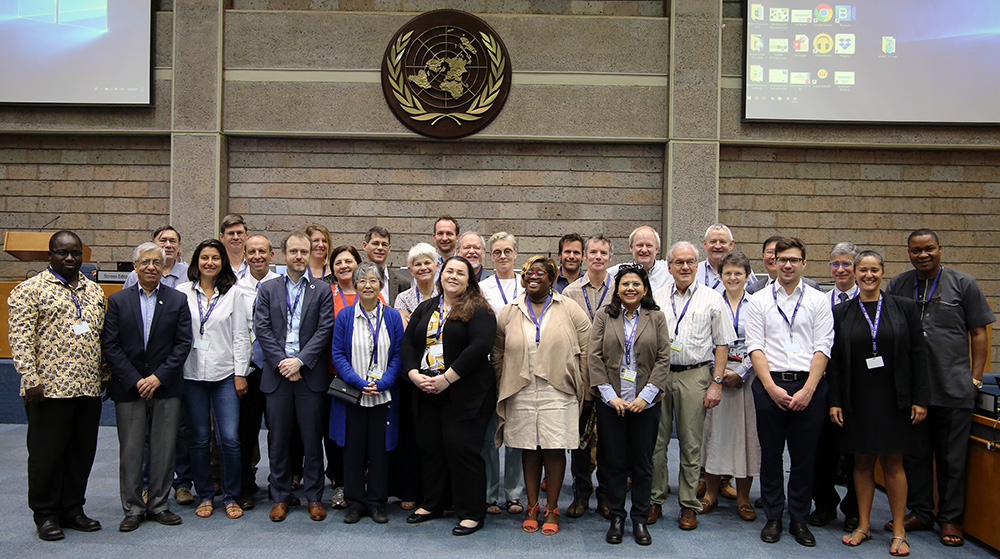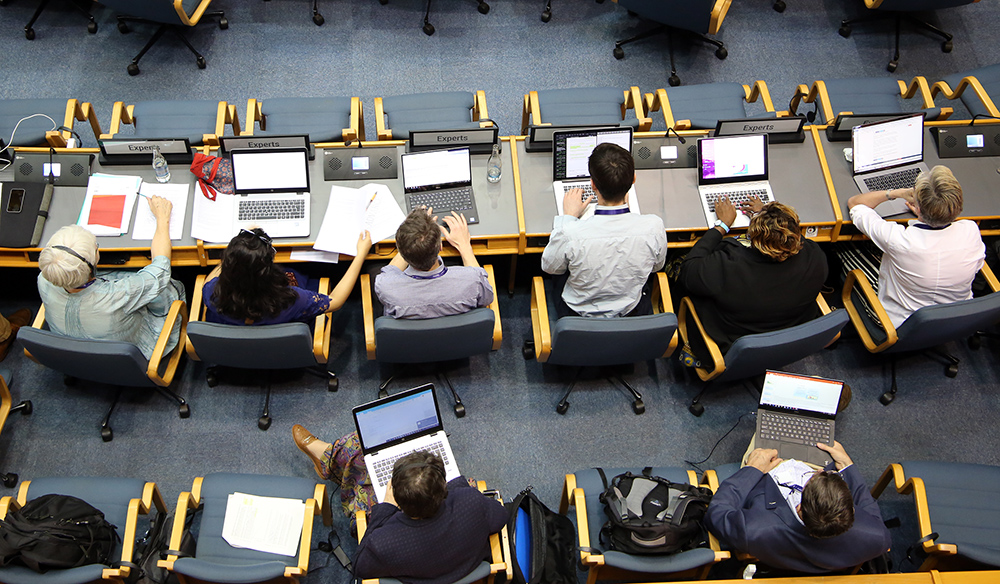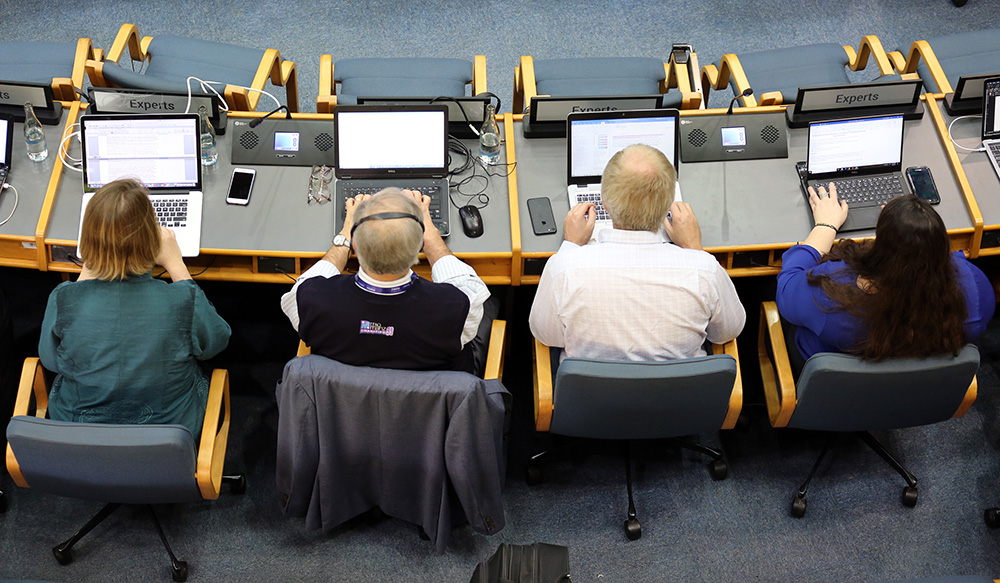The Intergovernmental Meeting on the Sixth Global Environment Outlook (GEO-6) resumed for its final day on Thursday, 24 January 2019, at the UN Environment (UNEP) headquarters in Nairobi, Kenya.
Delegates received the revised Summary for Policymakers (SPM) in the afternoon and met into the evening to review it, providing editorial changes to clarify and correct language discussed earlier in the week. They agreed that the key messages of the SPM would be incorporated in a Co-Chairs’ summary to be forwarded to fourth UN Environment Assembly (UNEA-4) in March 2019 alongside the GEO-6 and SPM.
During the closing session, several delegations thanked the Bureau for their work to streamline the text. Delegates also adopted the report of the meeting, which was presented by meeting rapporteur Aziza Geleta Dessalegn, Ethiopia. In his closing remarks, Jian Liu, UNEP Chief Scientist, thanked delegates for all their work in approving the SPM.
Co-Chair Paolo Soprano, Italy, closed the meeting at 10:14 pm.
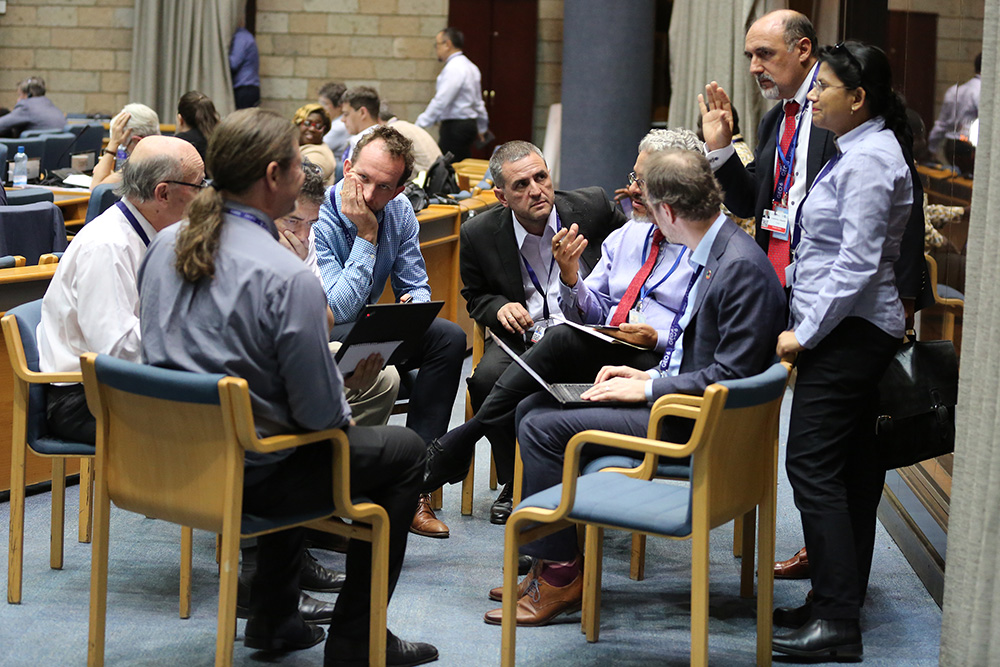
Participants negotiating text.
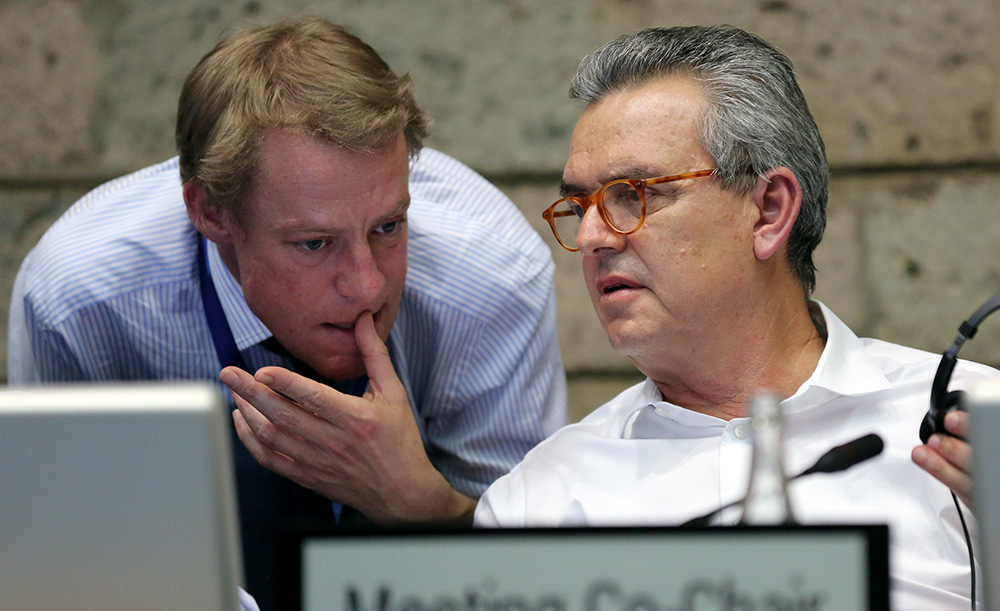
Matthew Billot, UN Environment (UNEP), and Co-Chair Edgar Gutiérrez-Espeleta, Costa Rica
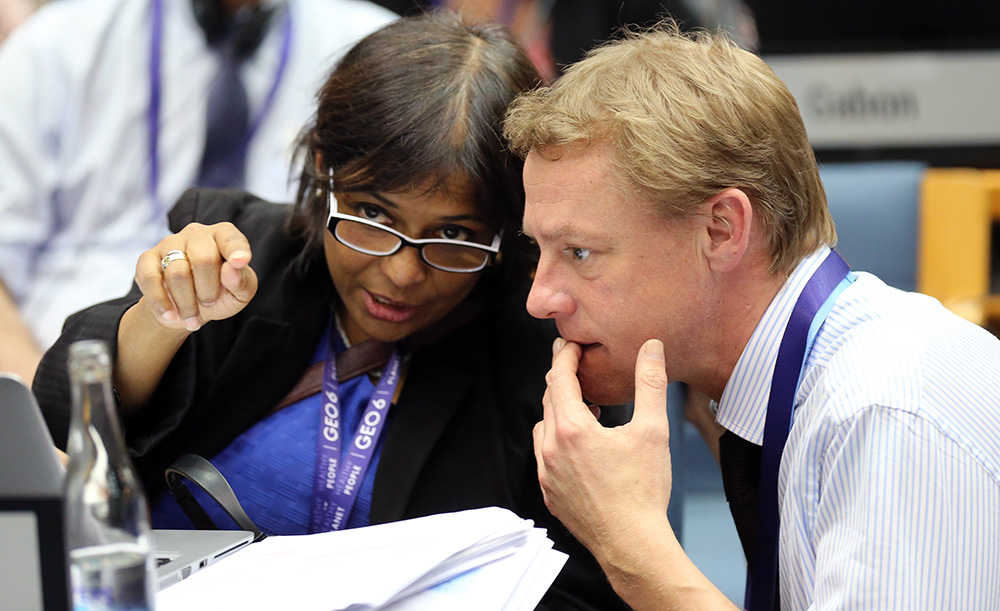
GEO-6 Assessment Co-Chair Joyeeta Gupta, India, with Matthew Billot, UNEP
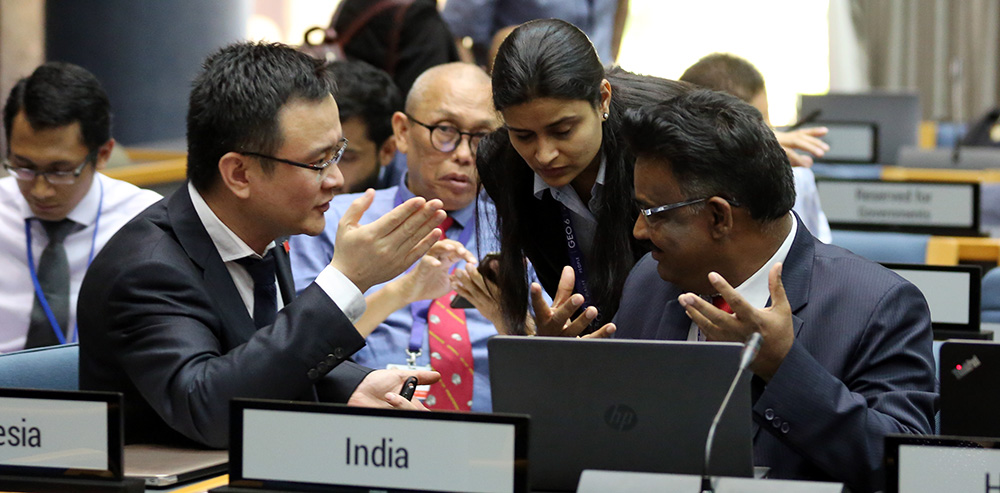
Delegates from India and China conferring before the start of the meeting.
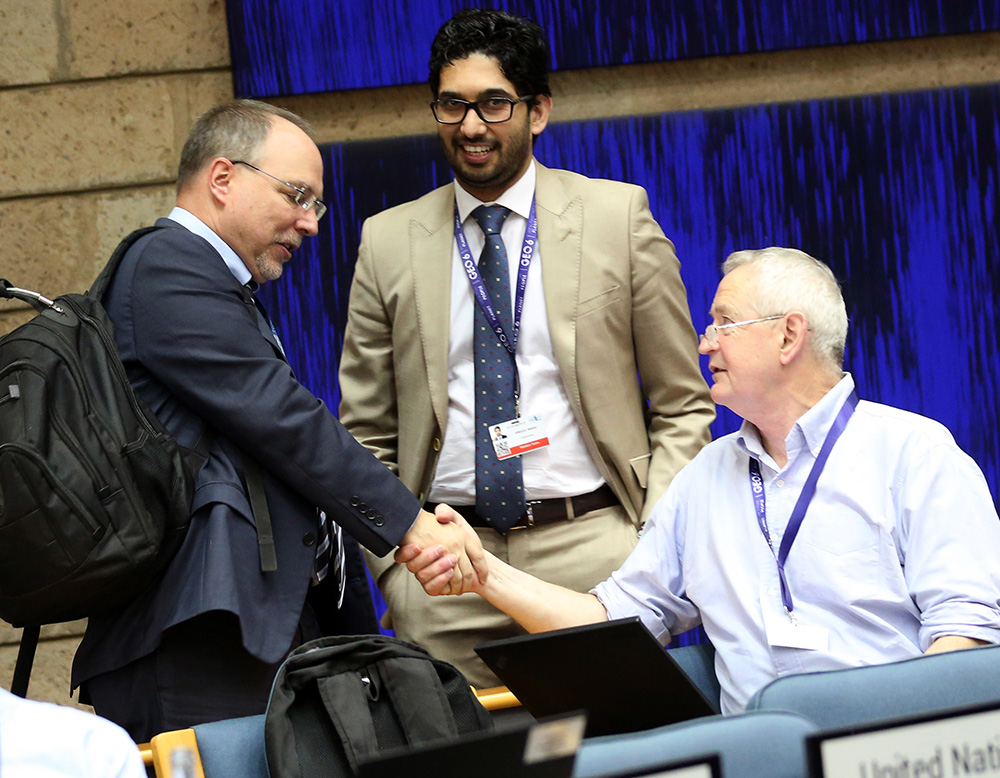
From L-R: Pierre Boileau, Head of GEO-6 Unit; Idrees Malyar, Afghanistan; and Fintan Hurley, GEO-6 author
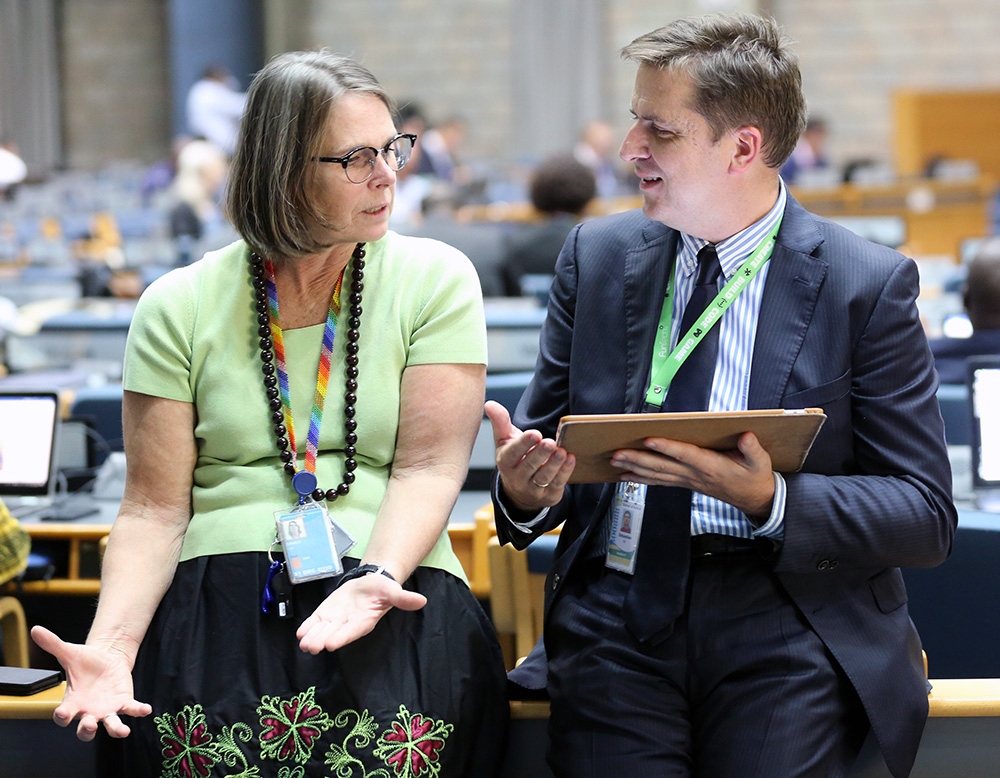
Lori Dando, US, and Sebastian Gil, EU
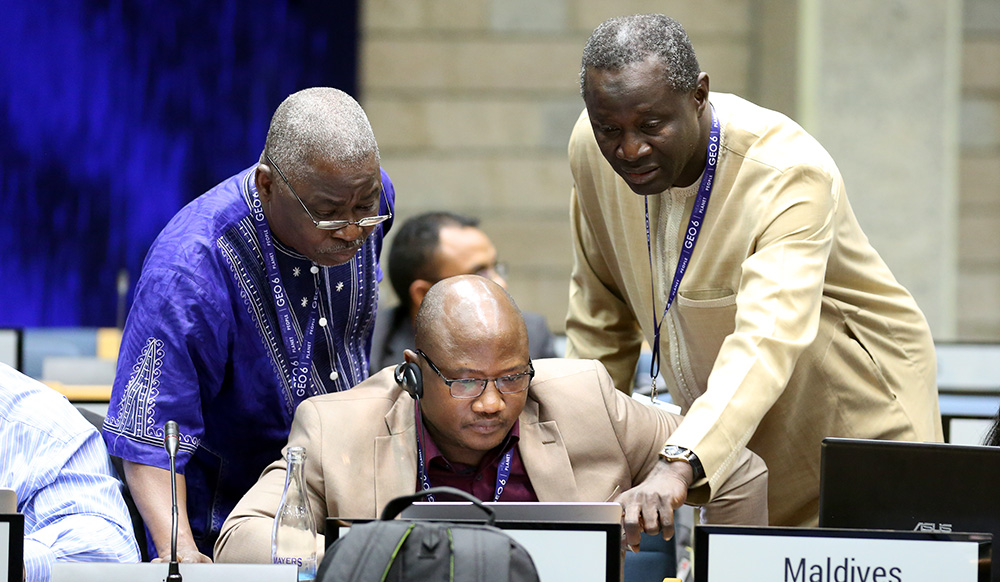
Delegates considering the new text.
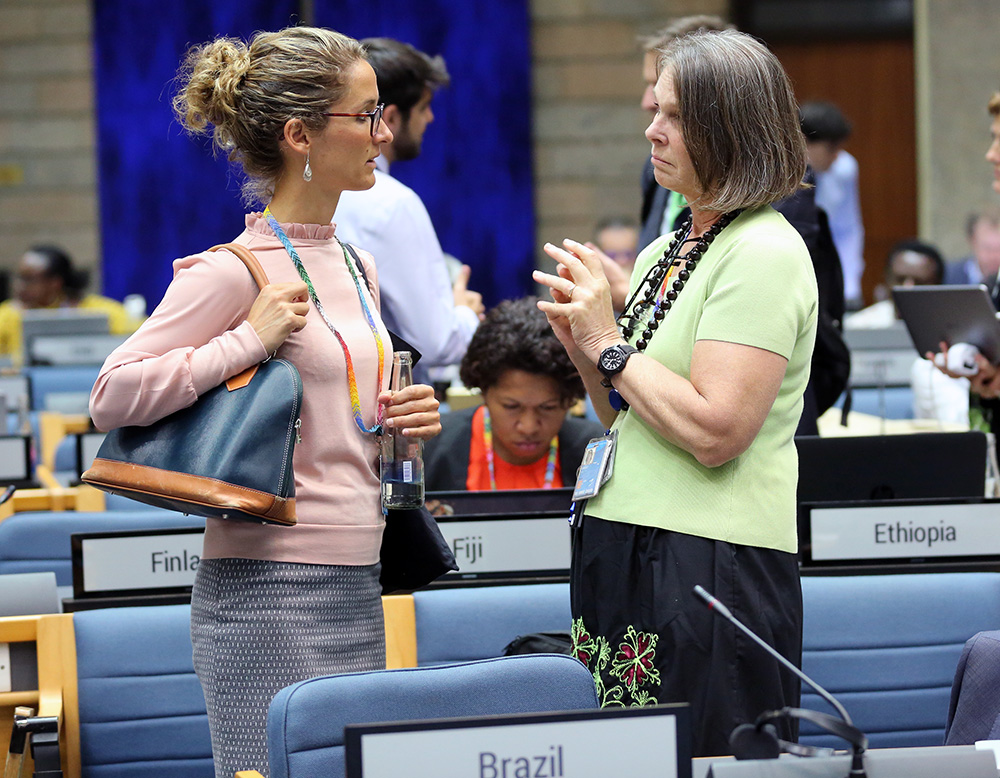
Miriam Ott, Germany, and Lori Dando, US
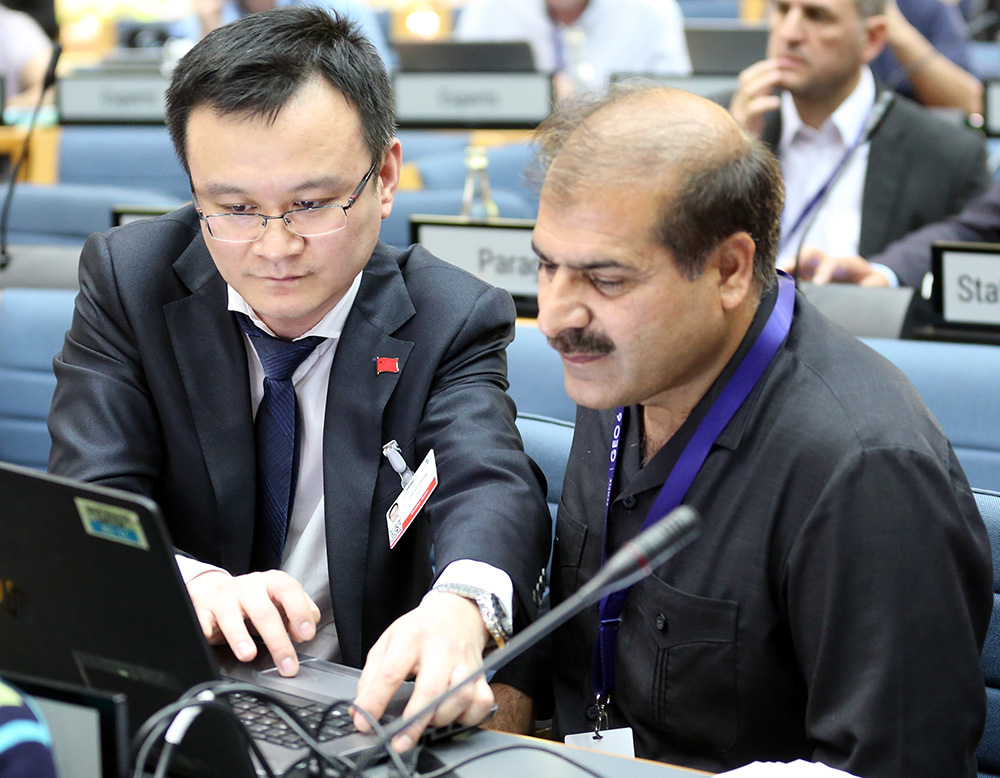
Zhuo Zhuang, China, with Muhammad Asif Sahibzada, Pakistan

Pierre Boileau, Head of GEO-6 Unit, UNEP, and Pascale Collas, Canada

From L-R: Pierre Boileau, Head of GEO-6 Unit; Adele Roccato, UNEP; and Co-Chair Paolo Soprano, Italy
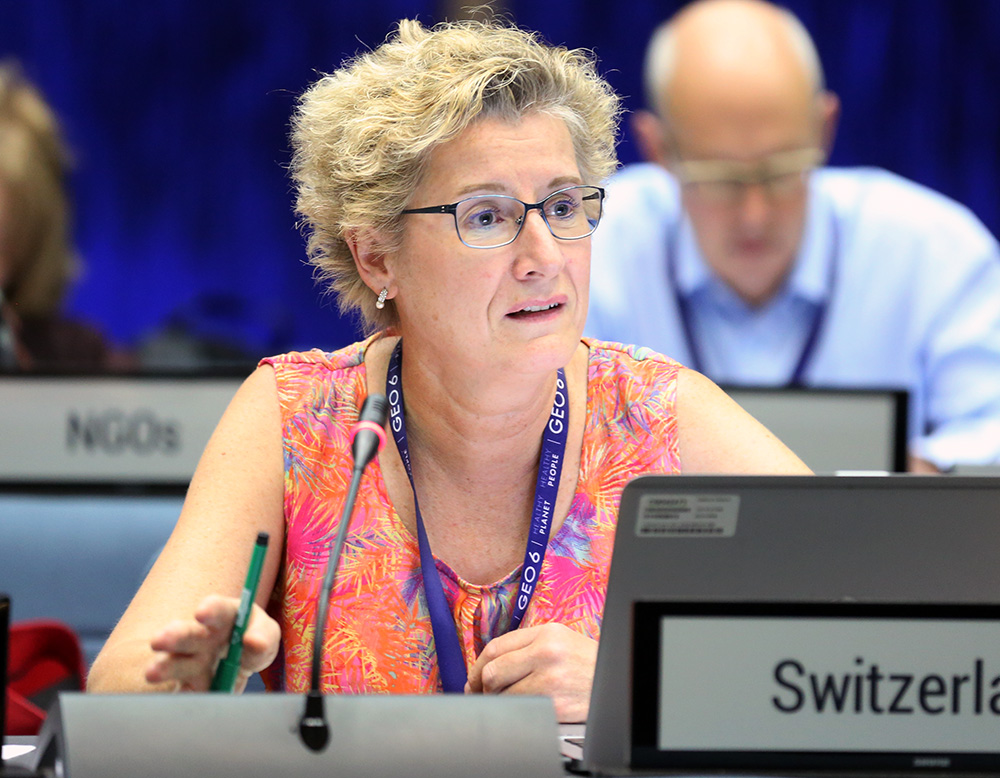
Sibylle Vermont, Switzerland
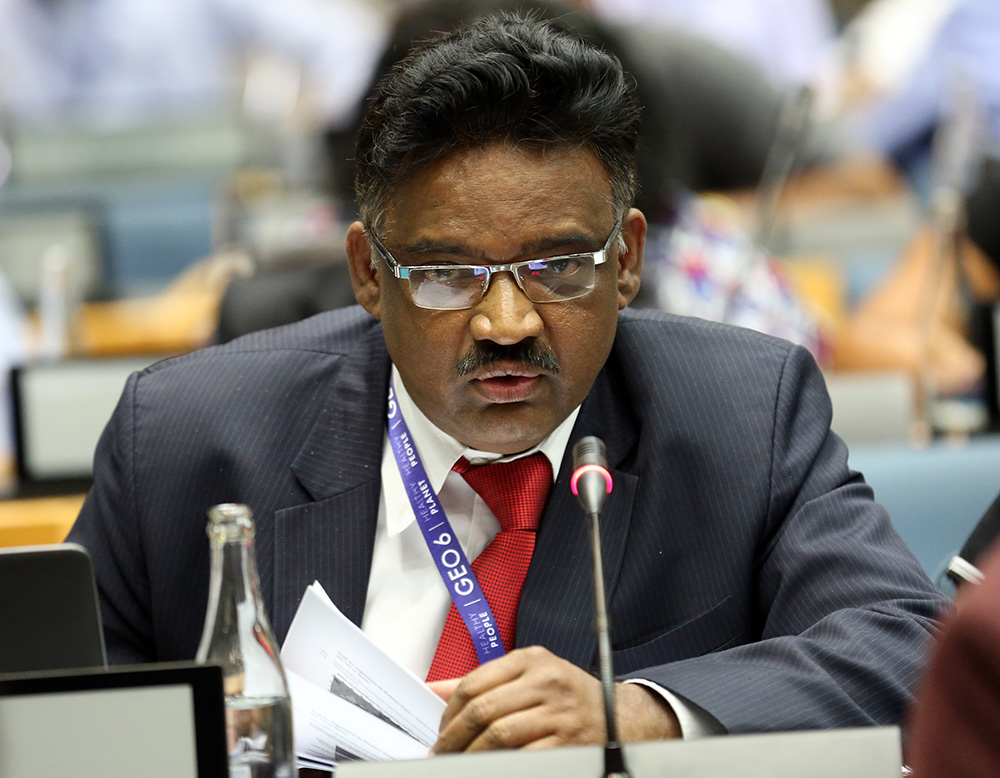
James Mathew, India
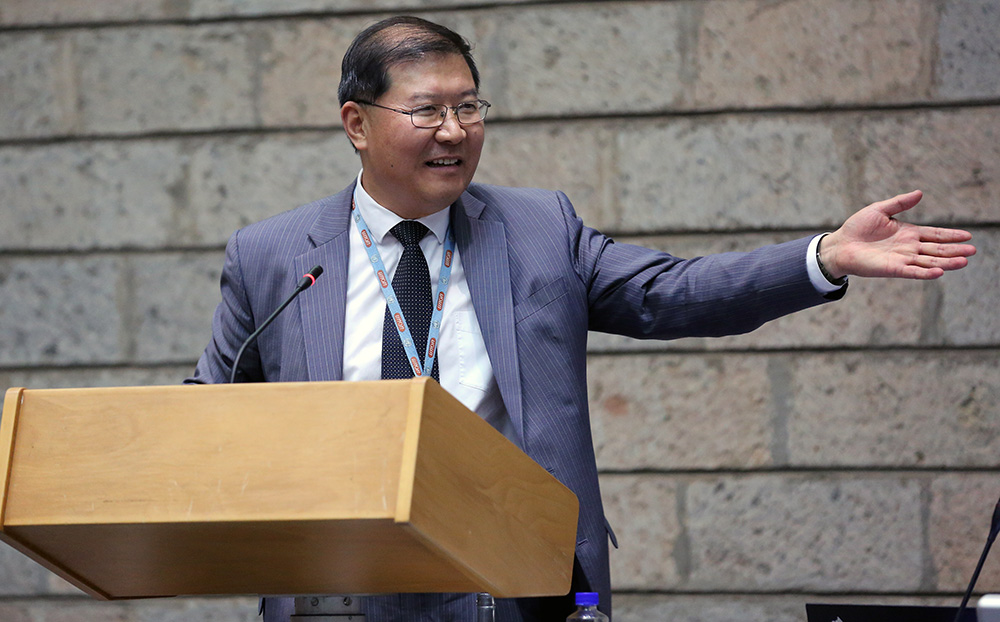
Jian Liu, Chief Scientist, UNEP
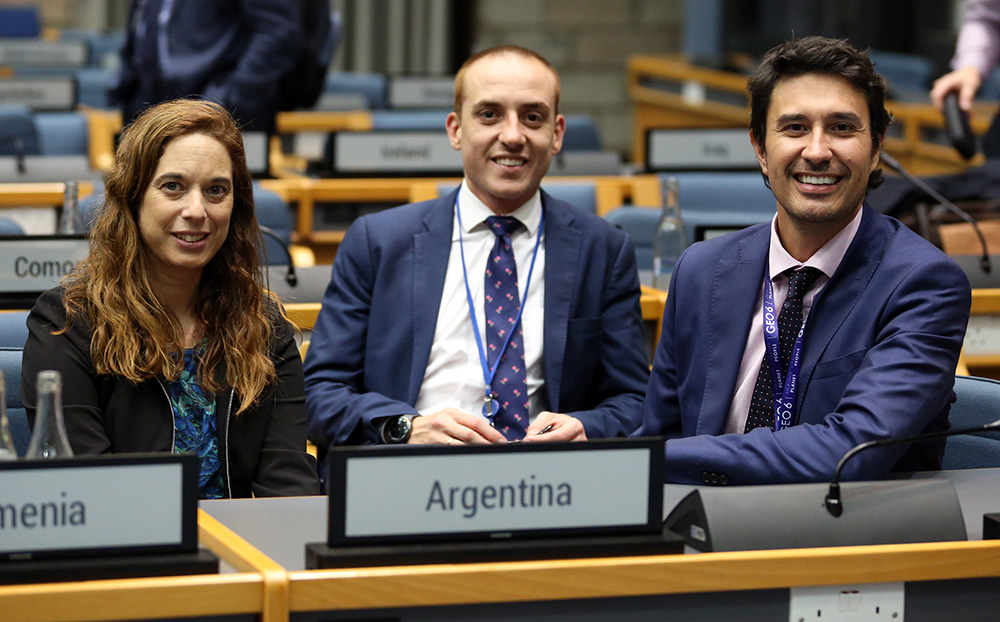
Mariela Chervin, Martin Gronda, and Luciano Donadio Linares, Argentina
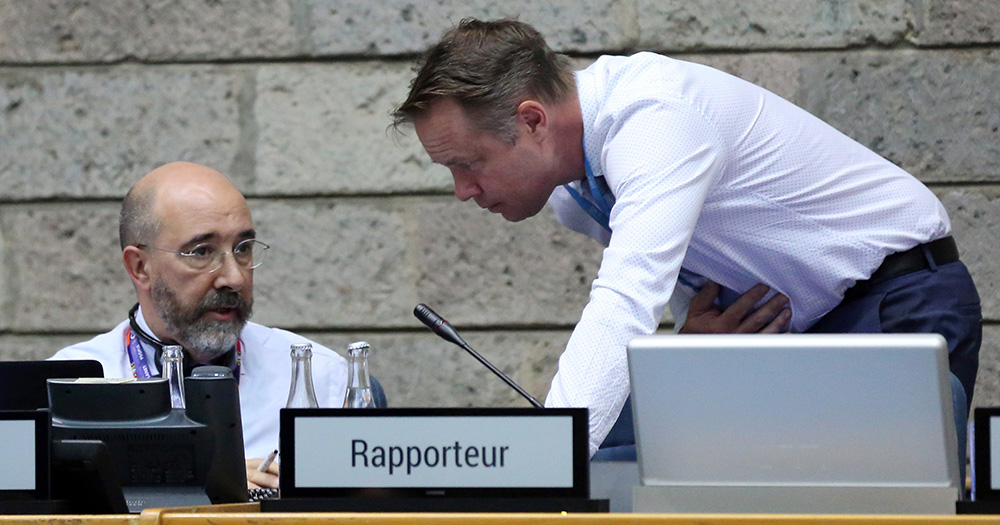
Edoardo Zandri, UNEP, with Ulf Björnholm, UNEP
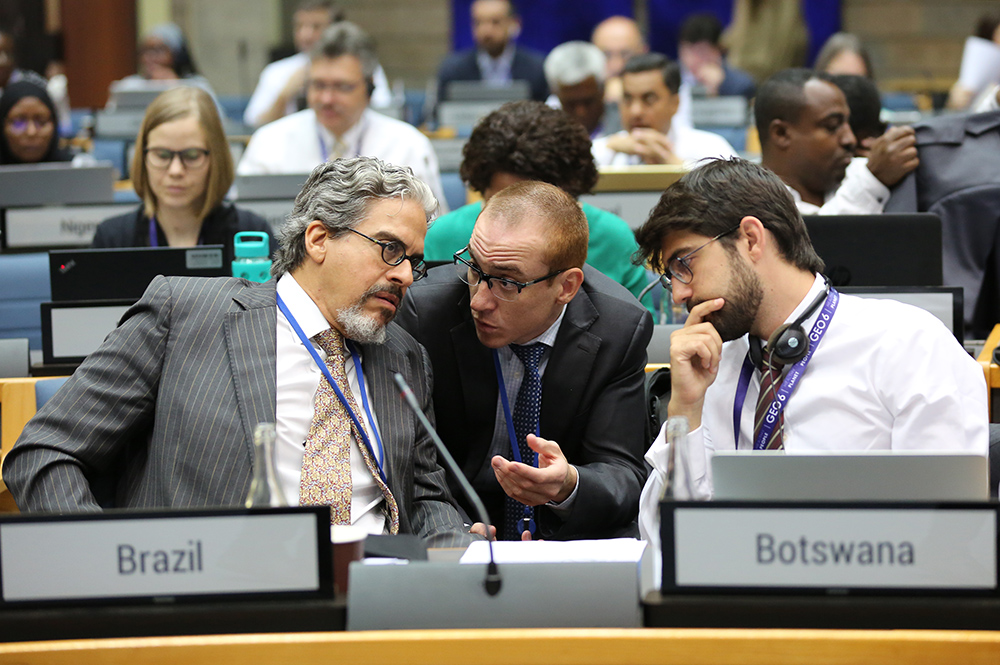
From L-R: Fernando Coimbra, Brazil; Martin Gronda, Argentina; and Vinicius Trindade, Brazil
The Intergovernmental Meeting on the Sixth Global Environment Outlook (GEO-6) resumed on Wednesday, 23 January 2019, at the UN Environment (UNEP) headquarters in Nairobi, Kenya.
Delegates met in the morning, afternoon, and into the evening, to complete the paragraph-by-paragraph reading of four sections of the Summary for Policymakers (SPM).
On the section on drivers of, and responses to, environmental degradation they discussed the following issues:
- greenhouse gases
- biodiversity
- oceans and coasts
- land and soil
- freshwater, and
- the changing environment
The section on effectiveness of environmental policies involved discussions on policy innovations, diffusion, and enforcement.
On future pathways they conferred on:
- the need for urgent, sustained and inclusive actions
- pathways towards achieving sustainable development
- innovations and transformation required to achieve environmental goals, and
- benefits from following sustainable pathways
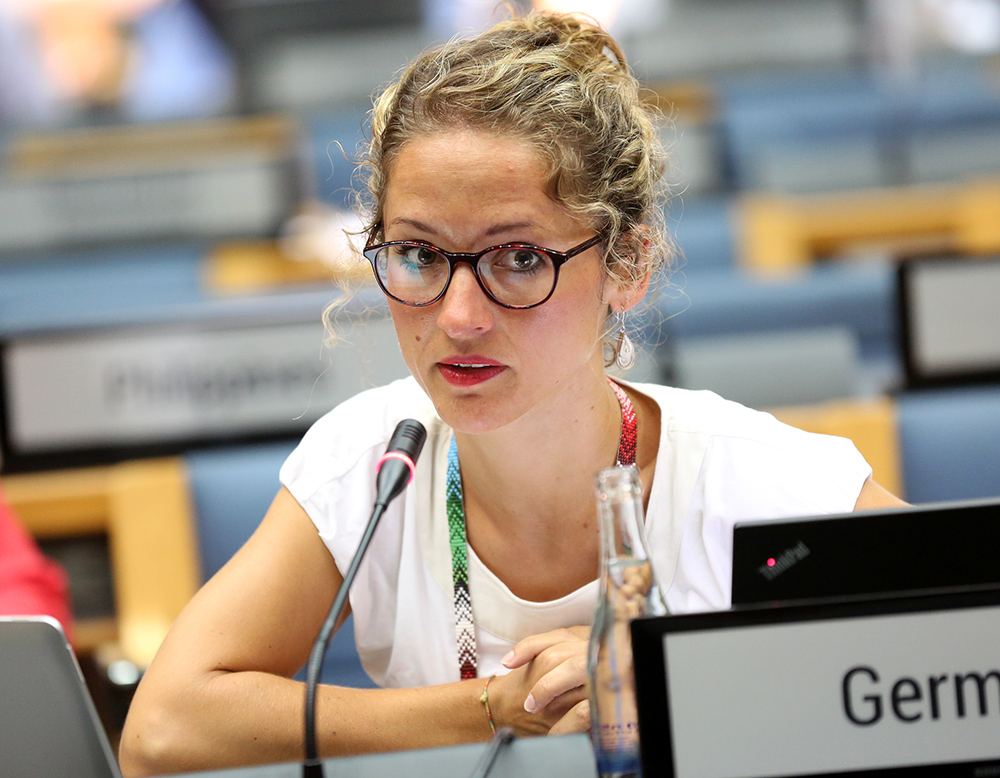
Miriam Ott, Germany
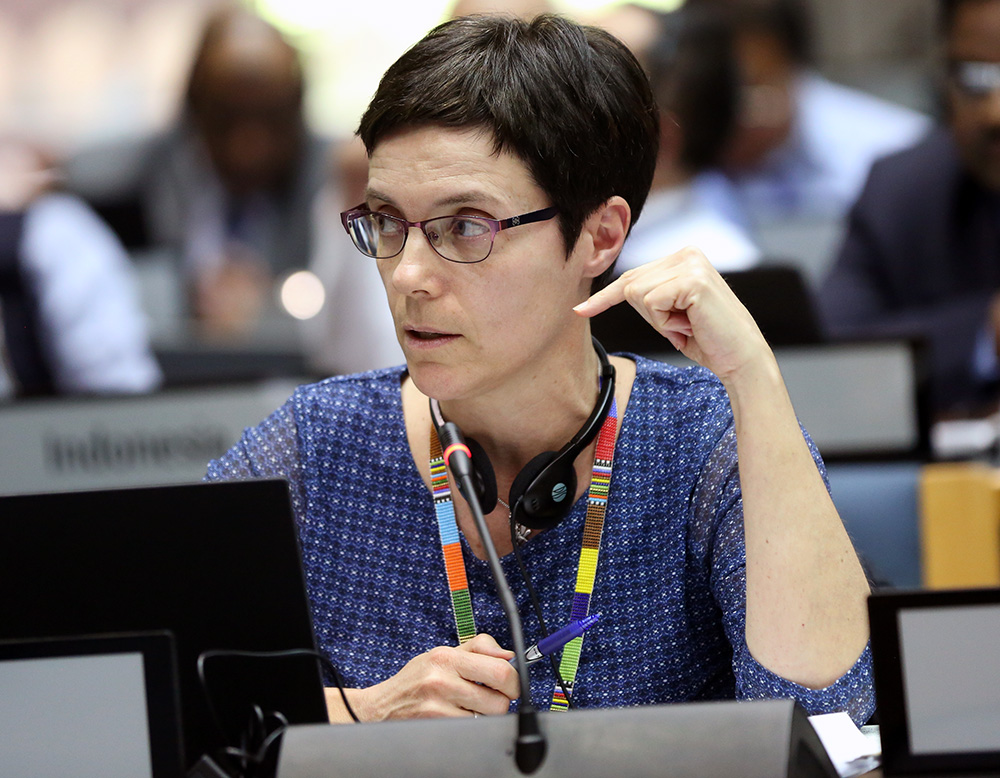
Pascale Collas, Canada

GEO-6 authors
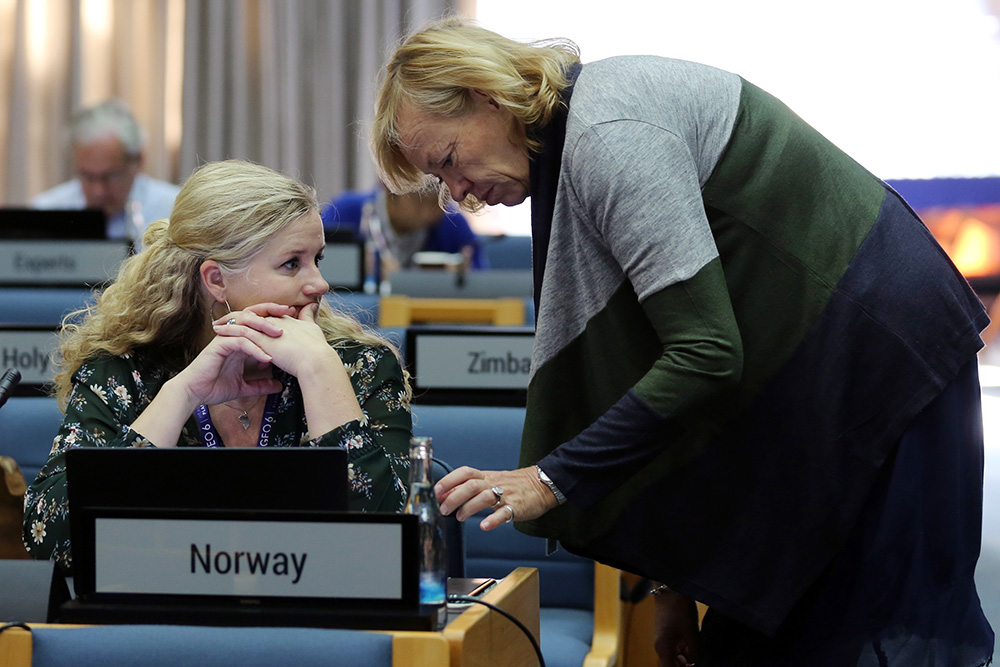
Anne Martinussen and Guri Sandborg, Norway
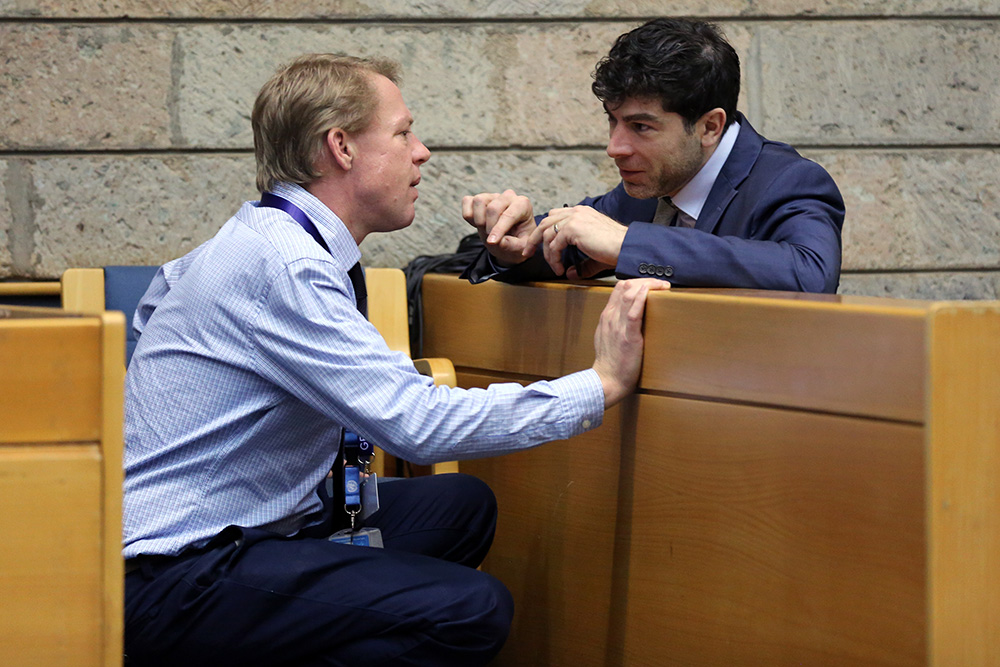
Matthew Billot and Jason Jabbour, UNEP
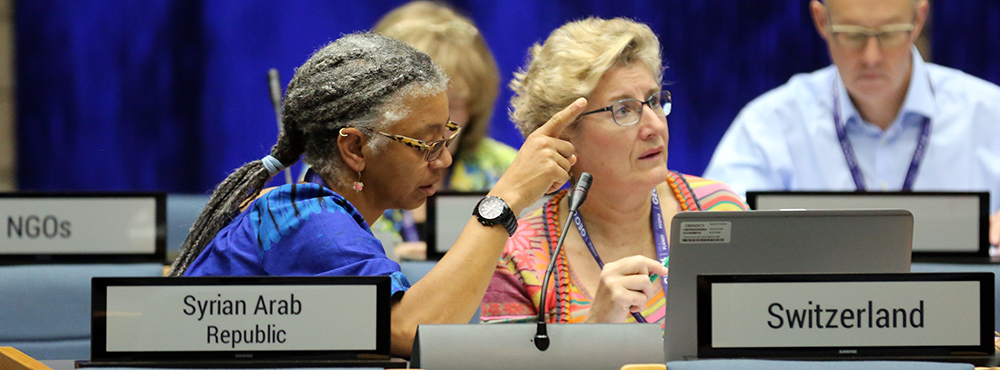
Gillian Bowser, Colorado State University, with Sibylle Vermont, Switzerland
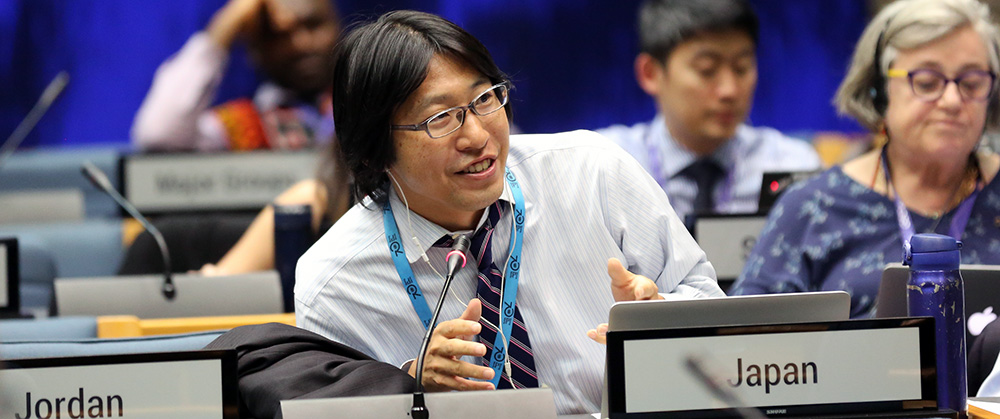
Nobukazu Naniwa, Japan
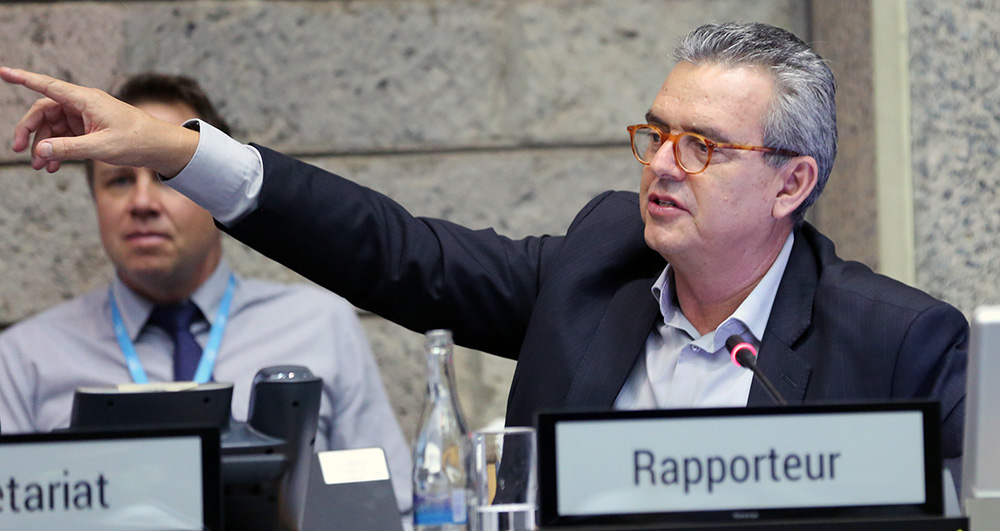
Co-Chair Edgar Gutiérrez-Espeleta, Costa Rica
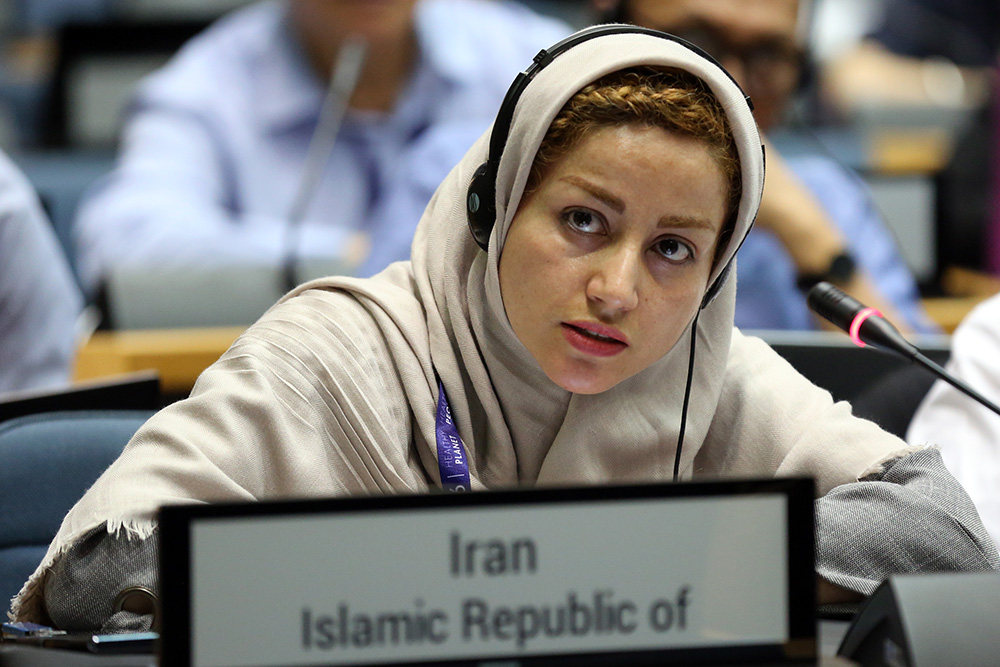
Afsane Moeeni, Iran
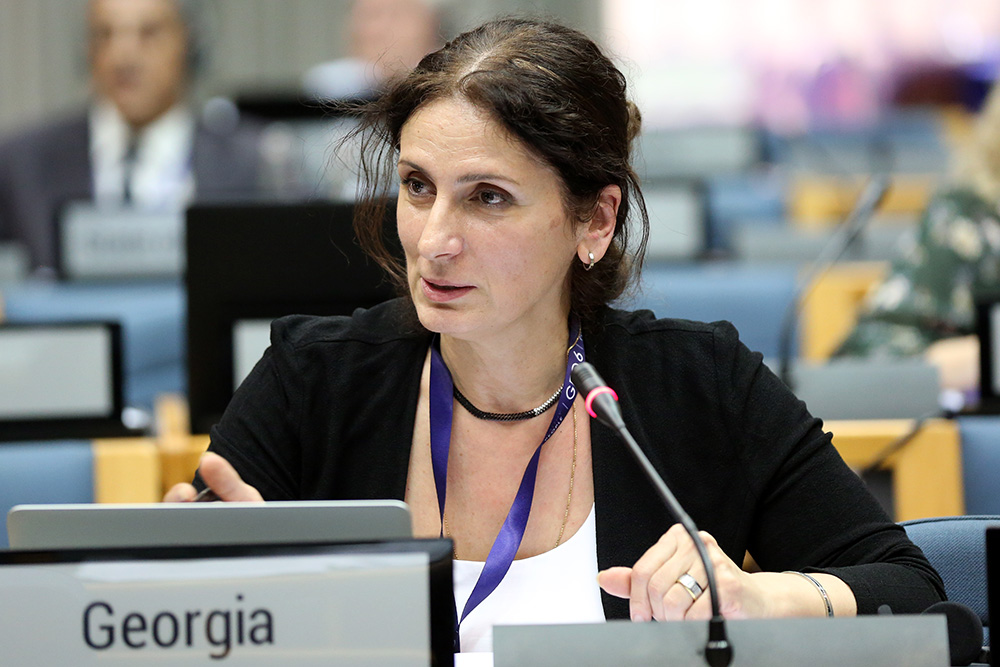
Nino Gokhelashvili, Georgia
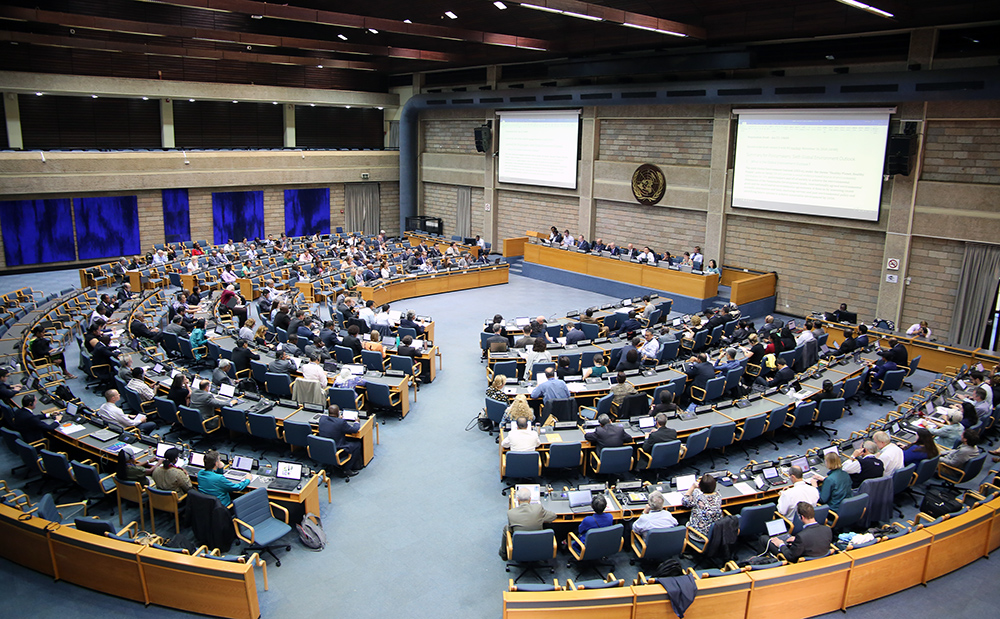
View of the room during the morning session
The Intergovernmental Meeting on the Sixth Global Environment Outlook (GEO-6) resumed on Tuesday, 22 January 2019, at the UN Environment (UNEP) headquarters in Nairobi, Kenya.
In the morning, delegates began a paragraph-by-paragraph reading of the Summary for Policymakers (SPM). They addressed the first section on “What is the Global Environment Outlook,” in the morning and the afternoon. In this section, they discussed definitions of the GEO including:
- the GEO as a consultative and participatory process for preparing an independent assessment of the state of the environment; and
- the GEO is a source of sound evidence-based information on the environment.
In the afternoon they addressed the second section on the drivers of environmental change, where they considered, inter alia:
- population dynamics;
- economic development;
- climate change; and
- urbanization.

View of the dais during the morning session
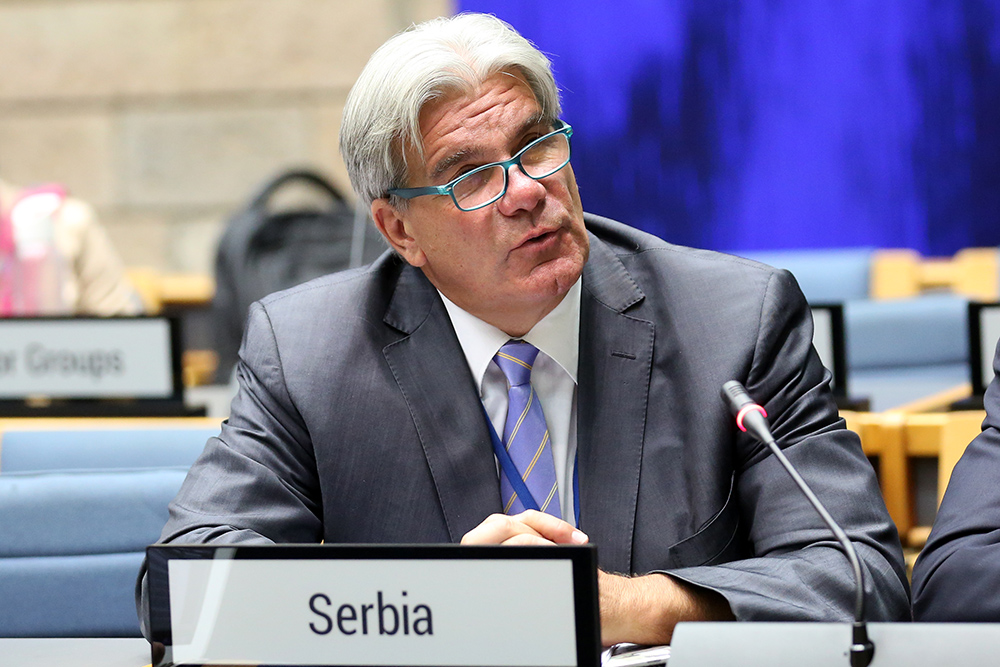
Dragan Županjevac, Serbia
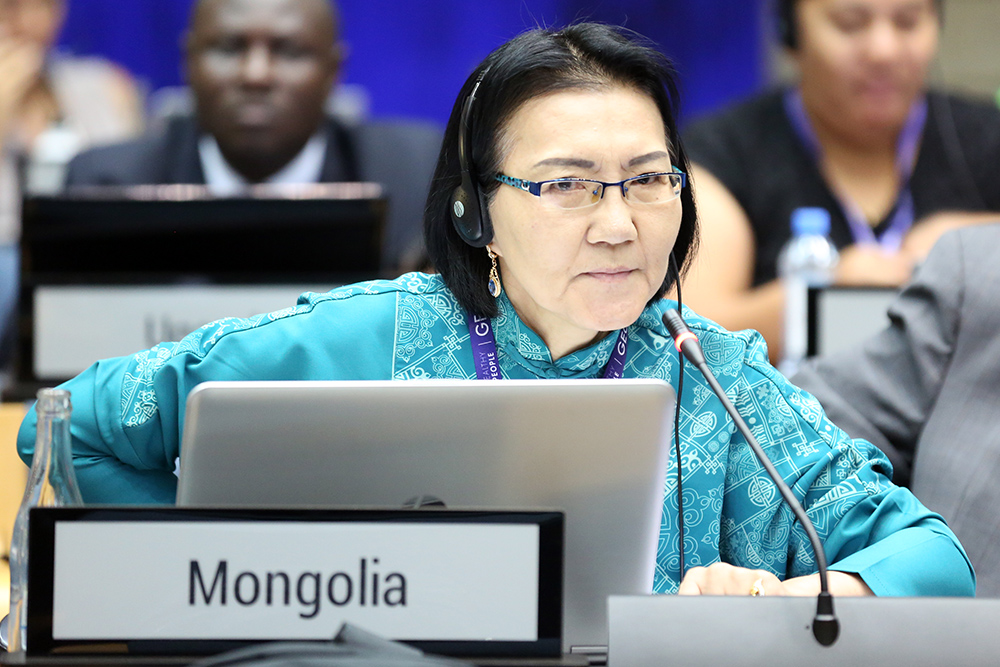
Tungalag Ulambayar, Mongolia
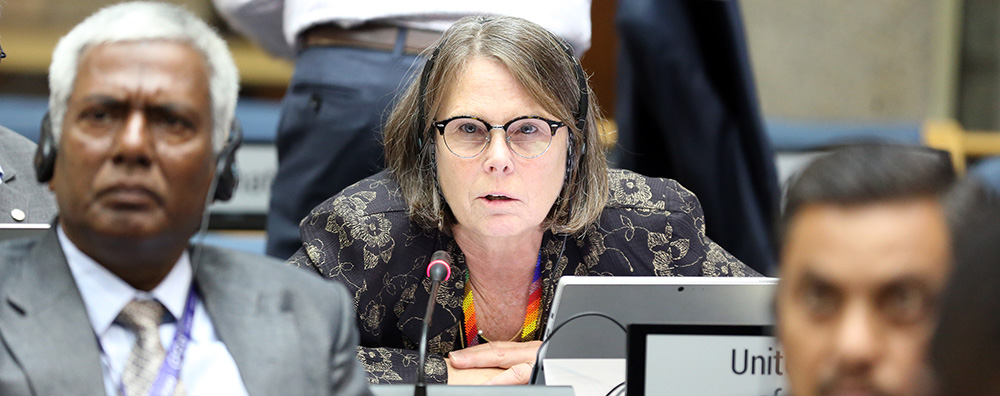
Lori Dando, US
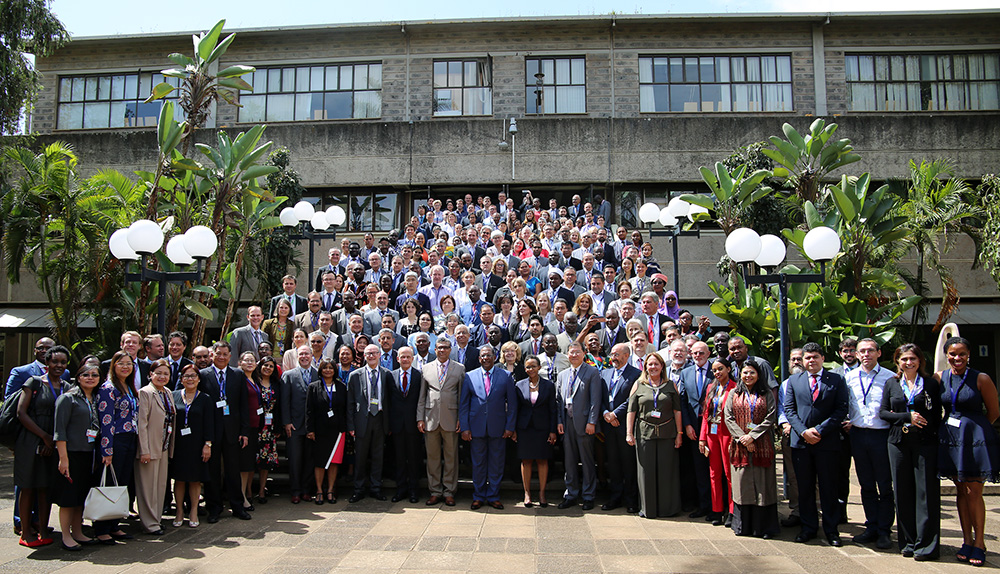
Group photo at the opening of the conference
The Intergovernmental Meeting on the Sixth Global Environment Outlook (GEO-6) opened on Monday, 21 January 2019, at the UN Environment (UNEP) headquarters in Nairobi, Kenya.
In the morning, Jorge Laguna-Celis, Secretary, Secretariat of Governing Bodies and Stakeholders, UNEP, opened the meeting. Delegates then listened to opening remarks from Co-Chair of the High-level Intergovernmental and Stakeholder Advisory Group (HLG) Paolo Soprano (Italy), Joyce Msuya, Acting Executive Director, UNEP, and Keriako Tobiko, Cabinet Secretary for Environment, Kenya. Delegates also addressed organizational matters including election of officers and listened to presentations on the GEO-6 process and the content and key messages of the draft GEO-6 Summary for Policymakers (SPM).
Delegates thereafter shared their general views of the draft SPM, which will remain embargoed until its adoption by member states on Thursday, 24 January 2019.
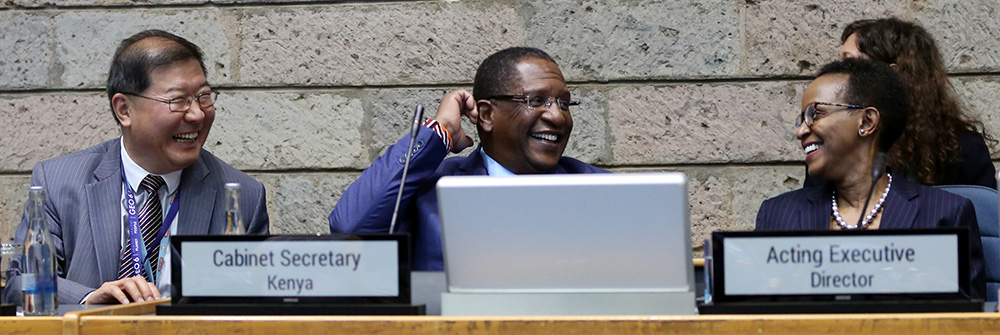
From L-R: Jian Liu, Chief Scientist, UN Environment (UNEP); Keriako Tobiko, Cabinet Secretary for the Ministry of Environment and Forestry, Kenya; and Joyce Msuya, Acting Executive Director, UNEP
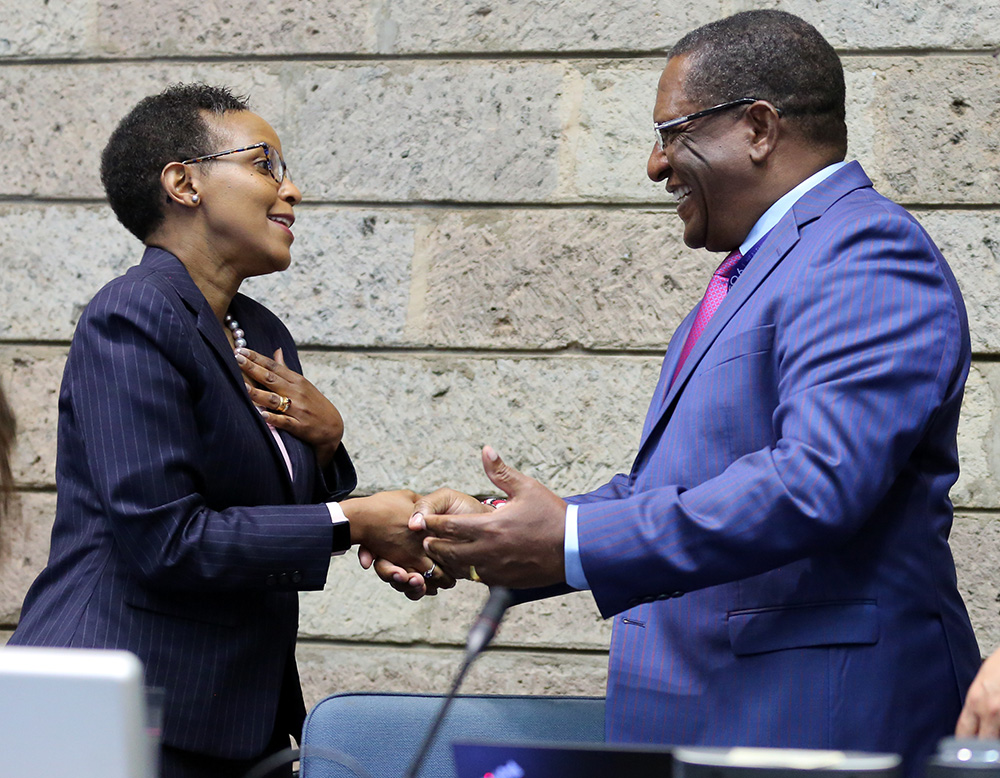
Joyce Msuya, Acting Executive Director, UNEP, and Keriako Tobiko, Cabinet Secretary for the Ministry of Environment and Forestry, Kenya
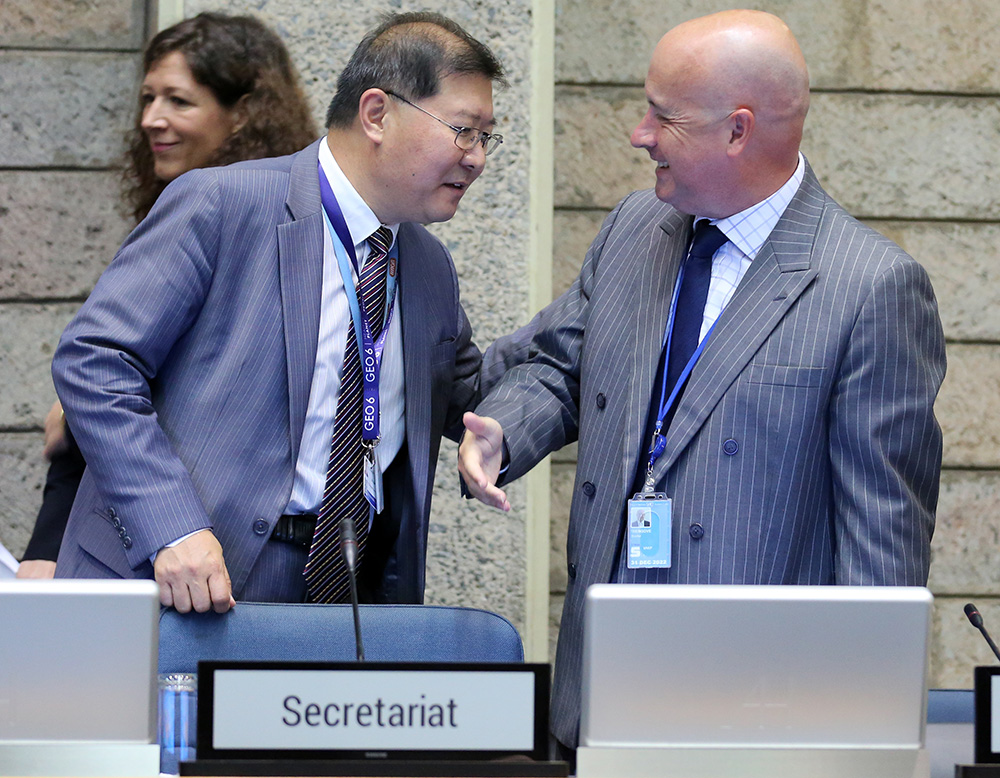
Jian Liu, Chief Scientist, UNEP, with Stadler Trengove, UN Legal Officer
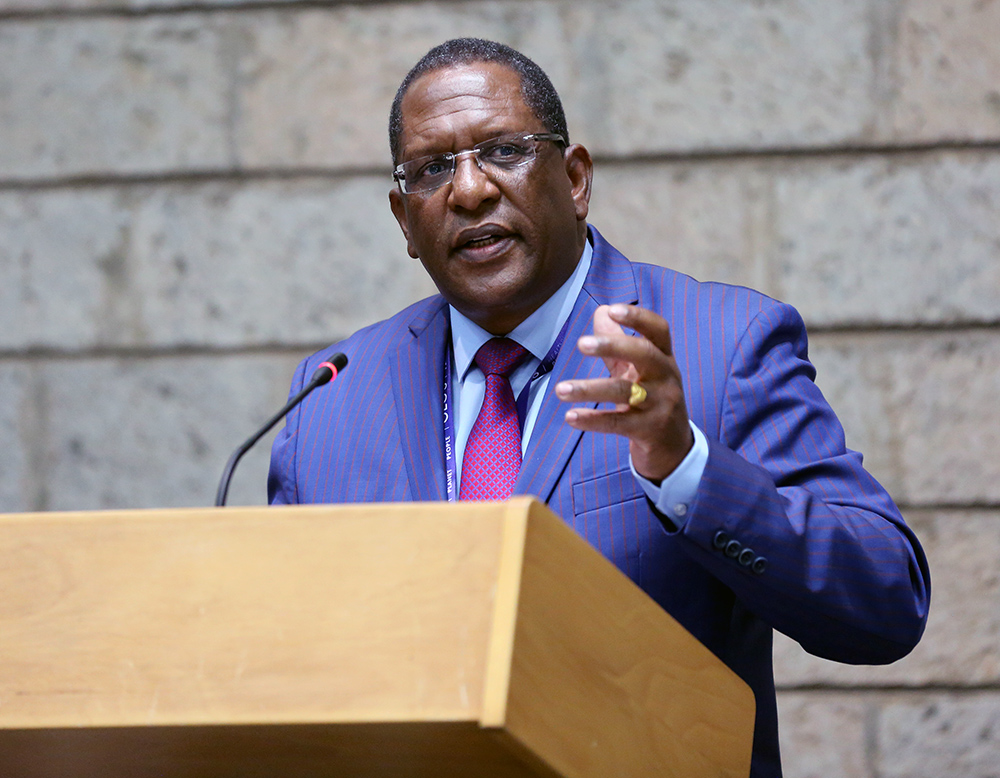
Keriako Tobiko, Cabinet Secretary for the Ministry of Environment and Forestry, Kenya
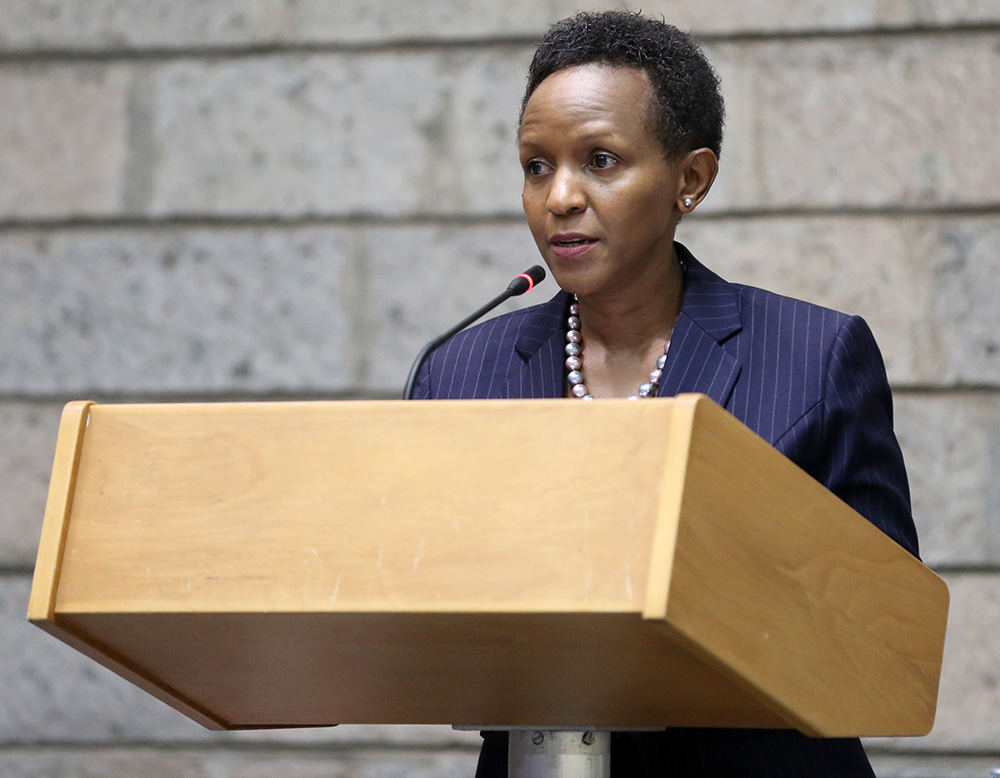
Joyce Msuya, Acting Executive Director, UNEP
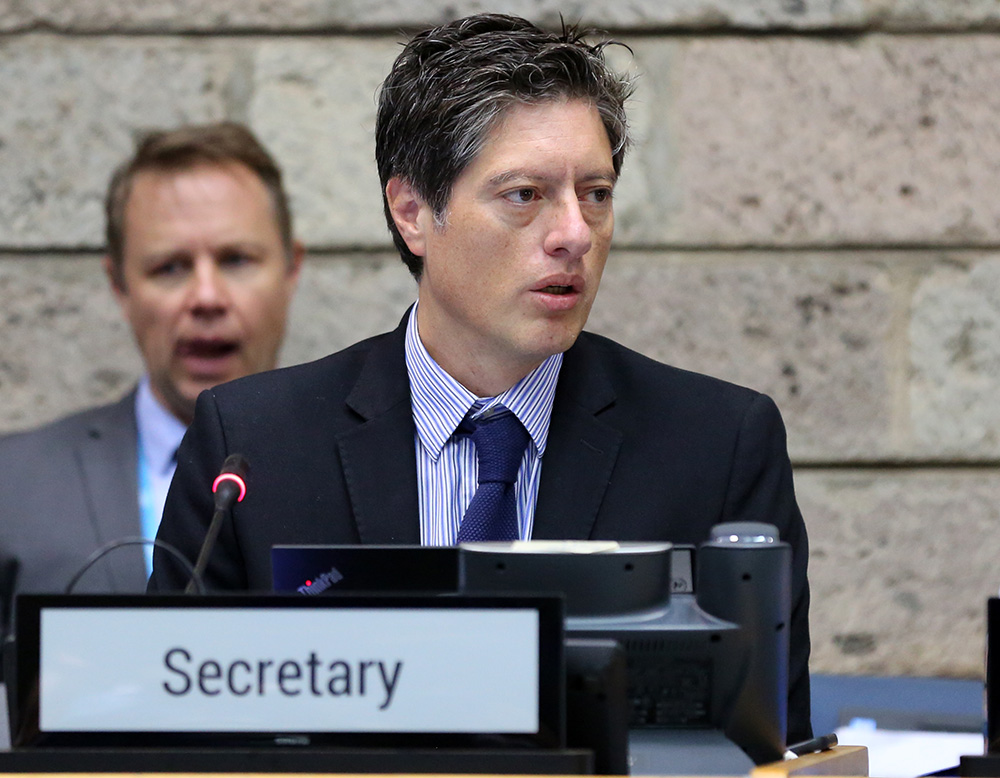
Jorge Laguna-Celis, Secretary, Secretariat of Governing Bodies, UNEP
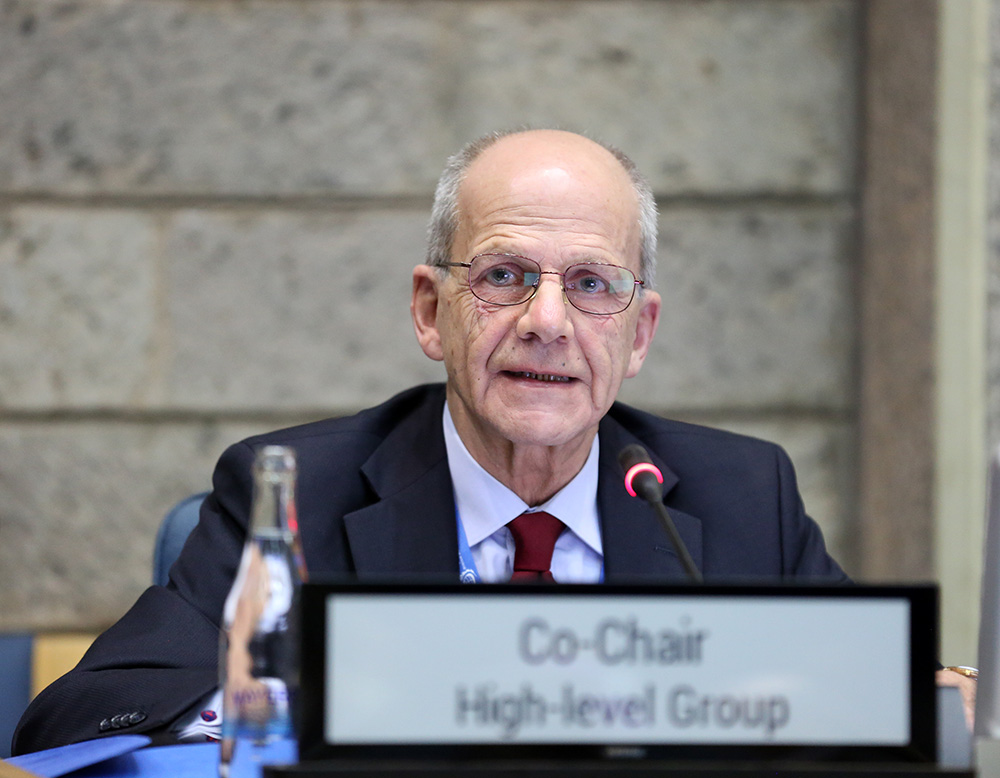
Co-Chair Paolo Soprano, Italy
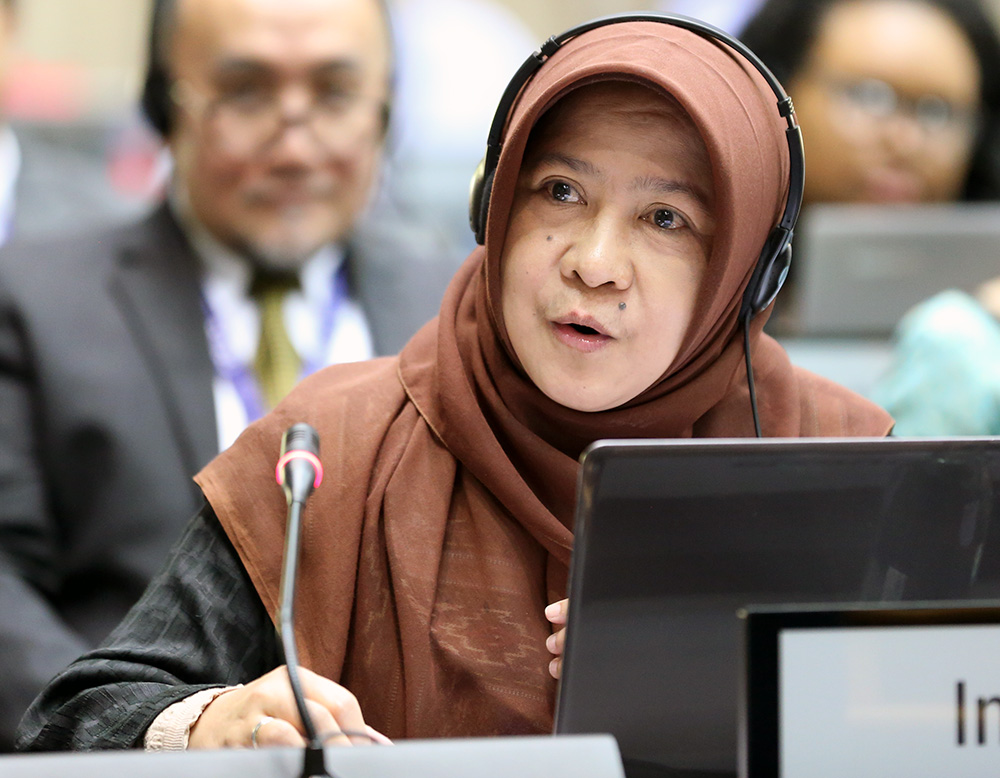
Laksmi Dhewanthi, Indonesia
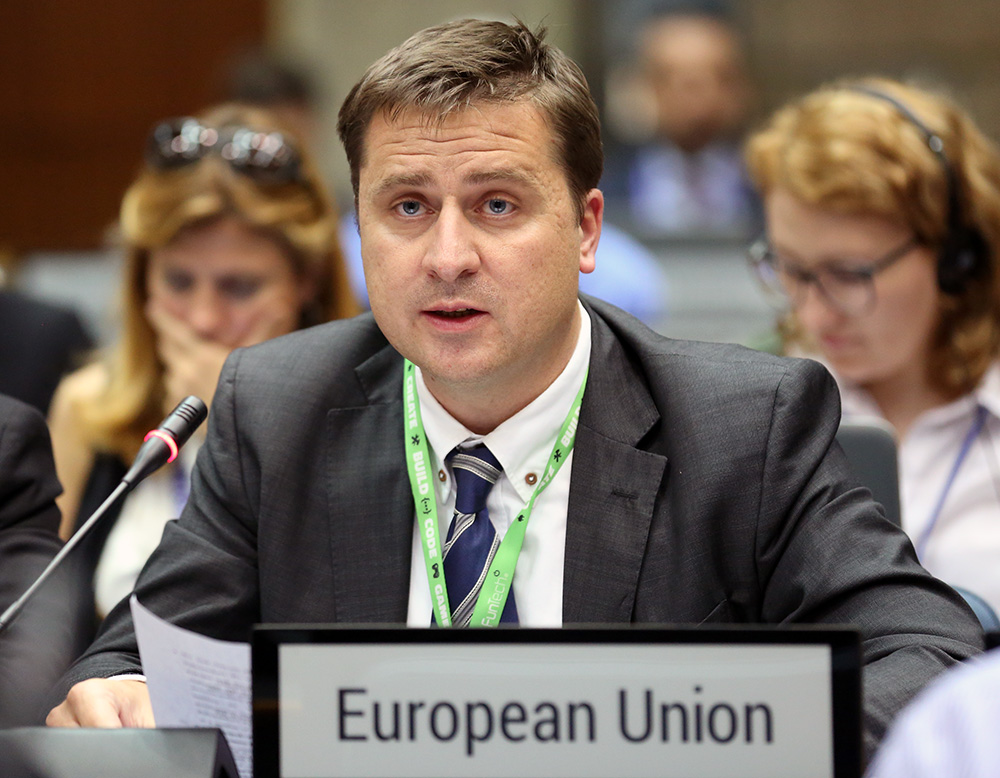
Sebastian Gil, European Union
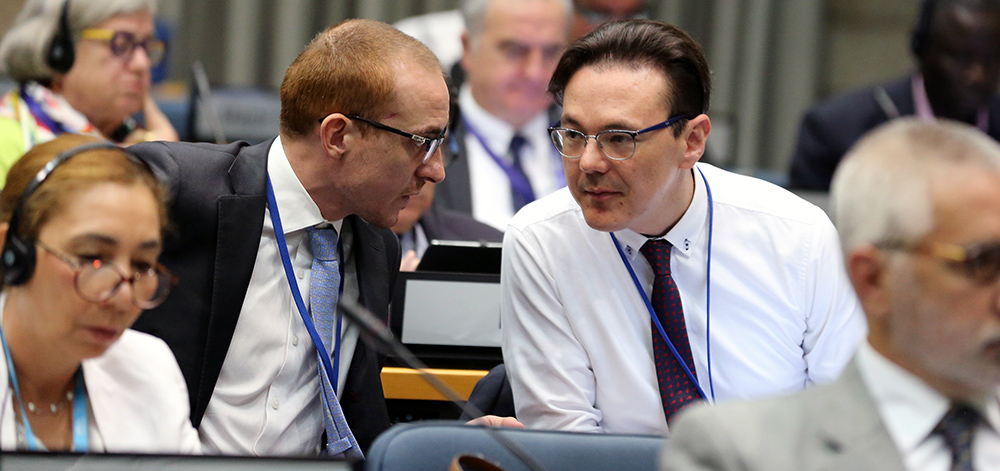
Martin Gronda, Argentina, with Sergio Salazar Alzate, Colombia
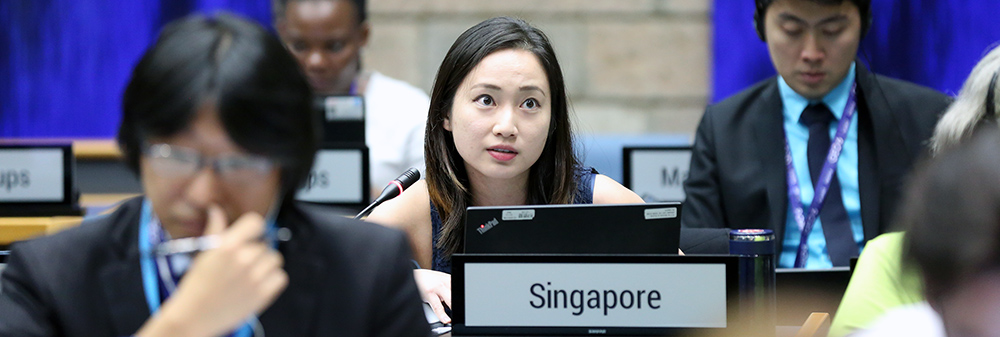
Vanessa Lim, Singapore
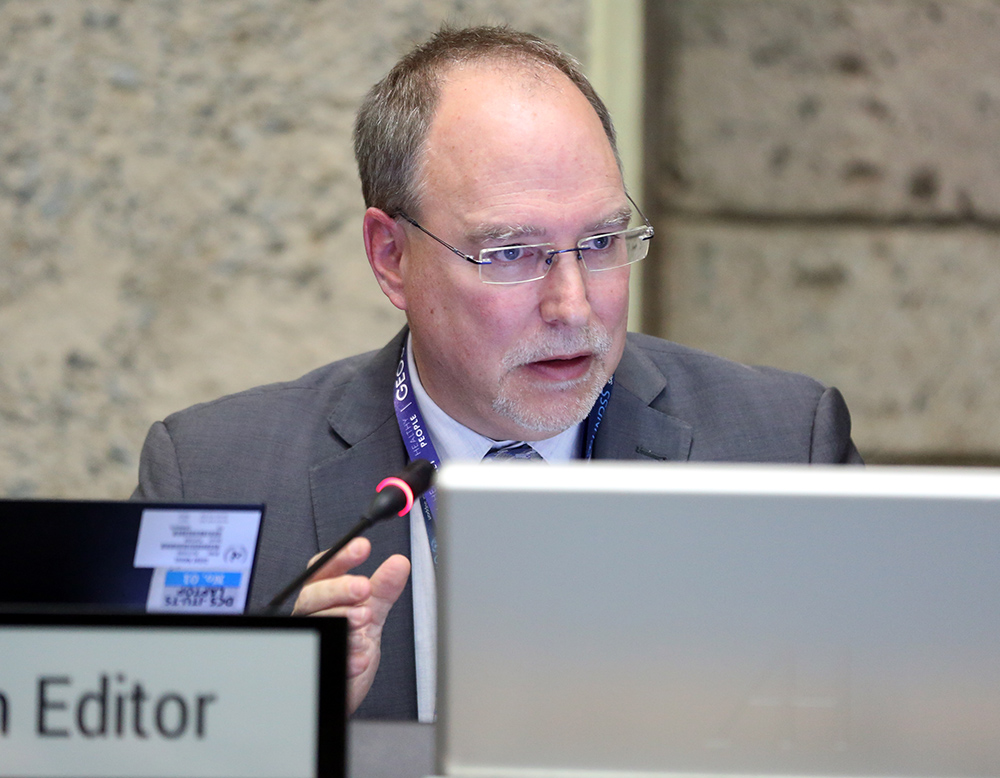
Pierre Boileau, Head of GEO-6 Unit, UNEP
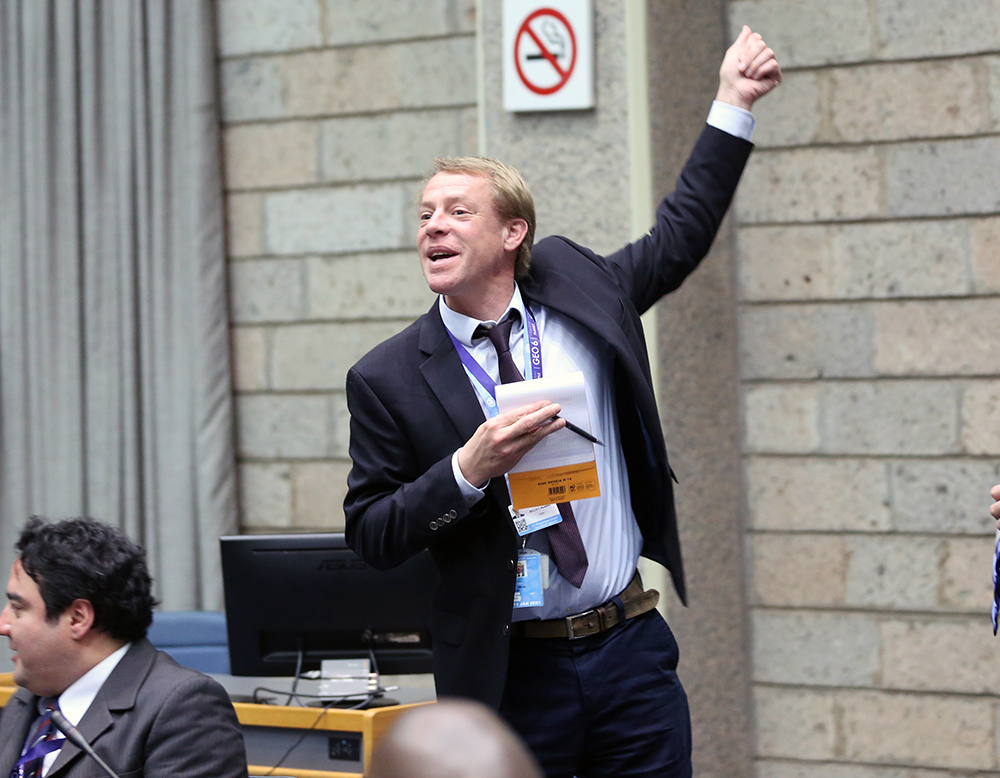
Matthew Billot, Regional Coordinator, UNEP
 Specific funding for IISD Reporting Services coverage of the Negotiation of the GEO-6 Summary for Policy Makers, has been provided by UNEP
Specific funding for IISD Reporting Services coverage of the Negotiation of the GEO-6 Summary for Policy Makers, has been provided by UNEP